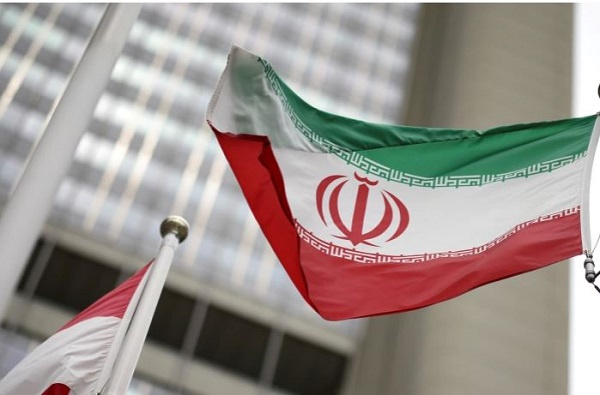 |
VIENNA, Dec 10 (NNN-AGENCIES) — Negotiations between Iran and world powers aimed at salvaging a tattered 2015 nuclear deal have resumed in Vienna after a few days’ pause, with tensions high after Tehran made demands last week that European countries strongly criticized.
European Union diplomat Enrique Mora, who chaired Thursday’s meeting of all the deal’s remaining signatories Iran, Britain, France, Germany, Russia, and China – said afterward that he felt “a renewed sense of purpose on the need to work and to reach an agreement on bringing the (agreement) back to life”.
He said that it is becoming “more imperative” with time to reach an agreement quickly.
Iran’s top negotiator in nuclear talks said he had insisted Tehran was serious in the negotiations, underlining that Iran was continuing talks based on its previous positions.
“Iran is serious about reaching an agreement if the ground is paved …. The fact that all sides want the talks to continue shows that all parties want to narrow the gaps,” Ali Bagheri Kani told reporters after talks resumed in Vienna.
The United States has participated indirectly in the talks because it withdrew from the accord in 2018 under then-President Donald Trump. President Joe Biden has signaled that he wants to rejoin the deal. Washington plans to send a delegation led by Robert Malley, the special US envoy for Iran, to Vienna over the weekend.
Diplomats from Britain, France, and Germany had urged Tehran to come back with “realistic proposals” after the Iranian delegation made numerous demands last week that other parties to the accord deemed unacceptable. US State Department spokesman Ned Price said this week that the US hopes the next round of talks “proceeds differently”.
Al Jazeera’s Dorsa Jabbari, reporting from Vienna as the talks were set to resume, said Iranian officials have warned that the comments from European officials could harm the talks.
“The Iranian foreign minister himself had a phone conversation with the EU’s top diplomat during which he stressed that the comments that have come from the EU are not constructive and they could have a damaging effect on these talks,” she said.
“There is a sense that the next 48 hours will be very crucial,” she added.
Kani held a trilateral meeting with the Chinese and Russian delegations ahead of the talks with all the deal’s signatories.
Russia’s top representative Mikhail Ulyanov at the Vienna talks expressed hope that an agreement could eventually be reached. He believes that contacts with the US and Iran “prove that both sides are very serious” about reviving the deal, though “their visions of relevant ways and means differ,” he said on Twitter.
“The task of the negotiators is to overcome these differences. It’s feasible in the light of the unity of purpose,” he said.
Last week’s talks were the first in more than five months, a gap caused by a new conservative government assuming power in Tehran.
The accord sealed in Vienna in 2015, formally known as the Joint Comprehensive Plan of Action, was meant to rein in Iran’s nuclear program in return for loosened economic sanctions.
Following the US decision to withdraw and reimpose sanctions against Iran, Tehran has ramped up its nuclear program again by enriching uranium beyond the thresholds allowed in the agreement.
Iran has also restricted monitors from the United Nations’ atomic watchdog from accessing its nuclear facilities, raising concerns about what the country is doing out of view.
Meanwhile, the US State Department said on Thursday that the Biden administration is moving to tighten enforcement of sanctions against Iran with the dispatch of a senior delegation to the United Arab Emirates next week.
The delegation, which will include the head of the US Treasury’s Office of Foreign Assets Control, Andrea Gacki, will issue a warning to companies in the UAE that are not in compliance with the sanctions, a State Department spokesperson was cited as saying by the Reuters news agency.
The spokesperson said the US has evidence of non-compliance, and that the firms could later be sanctioned or penalized over their dealings confirming a Wall Street Journal report. — NNN-AGENCIES



